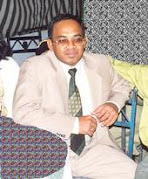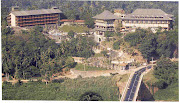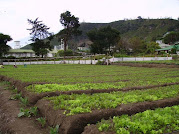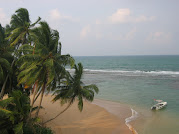Tour the beautiful island of Sri Lanka, the Land of Delights with My Sri Lanka Holidays. Total Holiday Experience awaits you in the beautiful tropical isalnd.
Sinhalese tradition of referring to Mahawamsa & other Sinhalese Buddhist books
Agricultural & Financial interests of
1993 REPRINT ISBN 81-7013-102-2 Footnotes in italics are mine.
Quote
Appendix A
Answers given by some of the best-informed Candian (1) Priests, to Questions put to them by Governor Falk (2), in the year 1769, respecting the ancient Laws & Customs of their Country.
A. If the King be a man of great abilities, well skilled in ancient laws & usages, acquainted with the practices of former Kings, & properly versed in religious knowledge, there are some matters which he may decide accordingy to his own pleasure; but there are, likewise, many others which he cannot determine without consulting the ministers & the people. Any doubts which exist upon this subject may be resolved by a reference to the book entitled Mahawamsa; wherein an account is given of the things which were done at the sole will & pleasure of King Parakrama Bahu, who ruled Lakdiwa (3), resided at Polonnaruwa; as well as of things done by him, after consulting his ministers.
A. It is said, in the book entitled Niti Sastra, that the basis of all good government is a victory over the senses: these are, Sights, Hearing, Smell, Taste, and Touch. A victory over the first is gained, when the wife of another can be beheld without giving rise to any wish or longing for her; over the second, when slander & abuse can be heard without exciting emotions of anger; over the third & fourth, when the organs of smelling & tasting are not immoderately delighted with perfumes & delicate viands; over the fifth, when the body is not captivated with its peculiar enjoyments. The first step towards the subjugation of the senses, is, reverence to parents, teachers, & elders; frequenting the society of wise persons is the source of that reverence; in order to be admitted into such society, learning must be acquired; by means of the wisdom derived from learning, a victory over the inclination is obtained, & that victory ensures the completion of every wish.
These are the Rules which ought to guide the conduct of Kings; a confirmation of which fact will be fond in the book entitled Tela Patta Jatake.
A. There are ten virtues which a King is enjoined to practice.
1. Charity; viz. giving rice & cloth to priests, Brahmins, & poor people.
2. Religion; viz. constantly maintaining the ordinances of Buddha
3. Liberality; viz. bestowing fields, gardens, & other valuable property.
4. Uprightness; viz. being void of deceit
5. Mercy; viz. not being of an obdurate mind
6. Temperance; viz. mortification of sensual desires
7. Placability; viz. not continuing to be angry after the cause of displeasure has ceased
8. Humanity: viz. not punishing, tormenting, or molesting innocent persons
9. Forbearance; viz. not being angry at faults before they have been well inquired into.
10. Impartiality; viz. shewing no undue preference to any one
Unquote
(2) British colonial governor of
(3)










































































































0 Comments:
Post a Comment